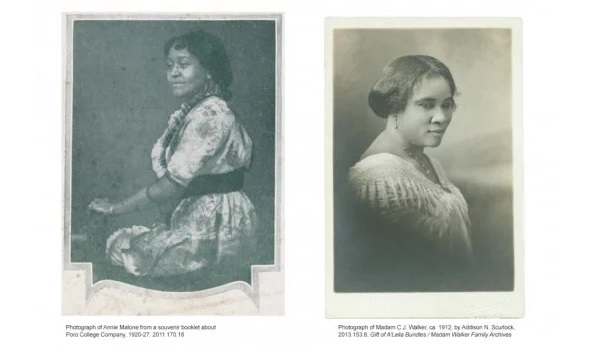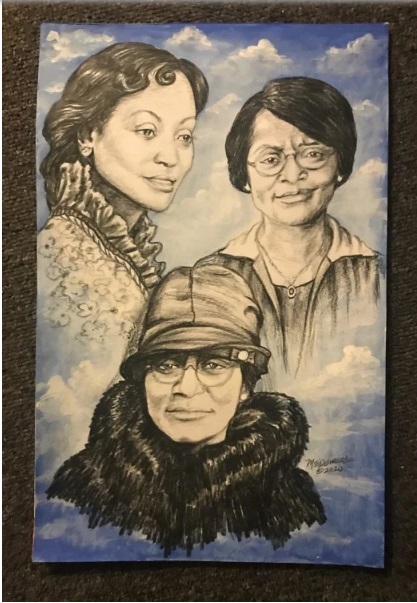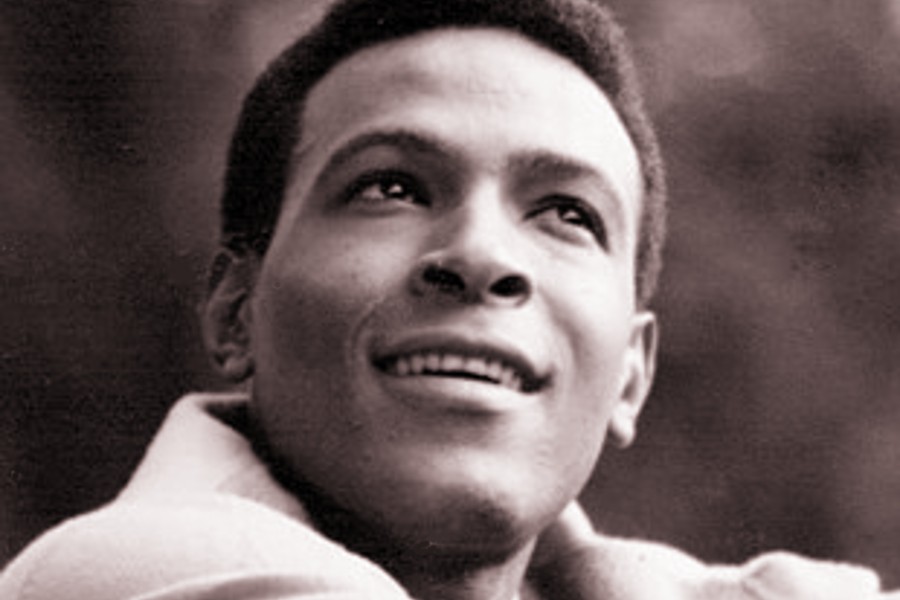
By Robert Walker
Spoiler Alert / Disclaimer
Let me first start with saying this to any Madam C.J. Walker admirers, and to those who maybe heard of Annie Malone (many have not),
this is not an attempt to be petty, or report anything against Walker.
This is a rebuttal to the essay that was written by Madam C.J. Walker’s great, great-granddaughter titled, “The Facts about Madam C.J. Walker and Annie Malone”.
When one considers the oppressive times that Madam C.J. Walker and African Americans lived under in this country and that she was a child of slaves, and a woman when women had very little to no rights, what she accomplished from her professional start in the haircare and beauty products business in 1906 to her death in 1919, can only be described as “astonishing”. And to refer to Madam Walker’s great, great grand-daughters own views about Walker’s legacy, her philanthropy, and training for women to learn a skill that allowed them the ability to provide quality of life for their families, was even more astonishing.
For those who plan to watch the Netflix series, “Self Made” that premiered March 20, 2020, I will allude to a few scenes in the series, so this is a spoiler alert to probably wait to read this article.
The Facts about Madam C.J. Walker and Annie Malone

That being said
Just as Walker gave back, so too was she given this opportunity to do better for herself and for her daughter. To go from being a laundress, making hardly any money at all, to becoming one of the wealthiest women in America. She owed that to Annie Minerva Turnbo Malone, who Walker was treated by for her scalp condition that was causing her hair to fall out, and who she learned the haircare business from.
This is significant because most of us have been under the belief that Madam C.J. Walker is the “mother” of the haircare industry and the first “self-made” African-American millionairess. This has angered many who know of Annie Malone’s impact and know that Walker was not the first.
There were other haircare entrepreneurs who helped shape what is now a multi-billion dollar industry that should be mentioned in this context. Women like, Sarah Spencer Washington and Madam N.A. Franklin, for example. If you look at the chronological order of these ladies professionally, Annie Malone would come first.
The other significant matter of note that cannot be simply dismissed, is that the relationship between Walker and Malone was a profound one for Walker (then Sarah Breedlove), who came to St. Louis in the early 1900s to live with her brothers, who were both Barbers (and there is a belief that one, or both, were graduates of Annie’s Poro College), but who certainly knew Annie and introduced Breedlove to Malone.
Sarah Breedlove, being ten years older than Malone, would be very impressed with Annie, because Malone was already a successful businesswoman in 1902 when they met and refined in the ways Walker wanted for herself and her daughter.
It could be argued that Malone was one of the most significant women in Sarah Breedlove’s life, next to her daughter, A’Lelia Walker. So, for me, this outright suppressing of Annie Malone’s name or mentioning her as a footnote diminishes the impact and importance she was to Sarah Breedlove, who would go on to great success on her own as Madam C.J. Walker.
And, the impact was also felt by Madam Walker’s daughter, A’Lelia Walker, who inherited the Walker empire along with longtime Walker attorney, Ransom, so much so, that when the Walker Theater (now the Walker Legacy Center) was built in 1927 in Indianapolis, IN, the exterior structure of the building was a near design replica of the Poro College building in St. Louis that was built and opened in 1918 by Malone. That building has since been demolished but was considered a state of the art structure for its time.
Every service to patrons and students, from education, product development, social gatherings, and meetings, to theater performances that Annie instituted in the Poro College headquarters, was emulated at the Walker Theater.
The ‘Self Made’ Netflix series (which premiered on March 20, 2020), uses the disclaimer in its title that the series is “based on true events” about the life of Madam C.J. Walker, which gives the producers artistic license to create fictional situations and “composite” characters to further their story arc. And this is exactly what they have done.
In the Netflix series, a “composite” character named Addie Monroe (note the initials, A.M.) was created to replace Annie Malone in the series, and they “totally” made Addie Monroe a cartoonish villainess that stalked Madam Walker once Walker broke ties to her. Whether this was intentional or not, they vilified Annie Malone.
In “The Facts about Madam C.J. Walker and Annie Malone”, the notion that this long time debate as to who was the first millionairess has become “petty, contrived and counterproductive” is disingenuous as this statement comes from the very person that, if she did not coin this, has supported the reporting of Walker as being the first, and who now acknowledges Malone as an “equal” to Walker, as suggested in her very recent essay we are discussing. I agree that it is counterproductive to a 40 year agenda to supplant in the minds, of even scholars, that Madam Walker was thee pioneer of the haircare industry. Walker herself refused to acknowledge Annie Malone’s impact on her life.
During 1913 (1912 is the year cited in “The Facts about Madam C.J. Walker and Annie Malone”) National Negro Business League conference in Philadelphia, a Who’s Who of successful African American entrepreneurs, civic and religious leaders, annual national convention for which Madam C.J. Walker was to speak, she spoke of her success in the haircare business and her beginnings without acknowledging Annie Malone who was sitting there amongst the esteem audience. It was reported that Annie, without a show of anger or contempt, got up and left the convention hall while Madam Walker was speaking. Her entourage followed her out of the room, including James Breedlove’s wife, Hattie Breedlove. (Again, James Breedlove was one of the brothers Madam C.J. Walker had come to live with in St. Louis, and who introduced the two ladies).

Consider this
*We know that by 1902 when Sarah Breedlove first met Annie Malone, Malone was already a successful entrepreneur with her Poro business. We also know that after Walker was treated by Malone for her scalp condition that was causing her hair to fall out, Breedlove would become a Poro agent somewhere before or in 1905.
*We know that Walker was dispatched to Denver in 1906 where she supposedly “married” C.J. Walker, decided to split ways with Poro and Annie, and start her own business, still using Poro products although claimed that she had a dream for the product line and business, and she continued to also use the Malone business model of door to door sales and agent recruitment. She did this successfully, and a census report shows her income grew exponentially.
Note: In my opinion, referring to Walker as a pioneering business woman and philanthropist, is also not a fact. Walker learned and emulated what Annie Malone taught her to great success. And her philanthropy was immense, and important, and also something she got from Annie Malone.
*Why did Walker break from Annie and Poro? We may never know the exact reason, and if the reason is known, no one has said (i.e., perhaps a diary exists from either ladies that could shed more light on this), but It was suggested by one scholar I spoke with to “follow the money”. Madam Walker most likely saw an opportunity to increase her income prospects once in Colorado as a Poro Agent, but as a newly single woman, she could not do business as a man could, unless she was married, and so enters C.J. Walker and then the formation of the Madam C.J. Walker Manufacturing Company. Whatever Walker’s increase in profit was related to, would not have been acceptable to Annie Malone who was a “staunch” Christian woman (I will provide more of a theory on this statement as to what we believe that increased money source for Walker was in another article).
This would lead to a rivalry between the two ladies until Madam Walker’s passing in 1919. There are newspaper Ads of the two women making claims against one another, that concerned Annie to the point of getting a patent on a protective seal tape that she would warn her patrons that any products that are purchased and not having that sealing tape, to beware that it was not a Poro hair or beauty product.
*As for the ingredients used in haircare mixtures that already existed according to “The Facts about Madam C.J. Walker and Annie Malone” the suggestion is that there were already in existence formulas the two ladies used to create their products.
However, and what was not mentioned is, Malone came up with a product using only those ingredients that were not harmful, allowing her product brands to reverse hair and scalp damage, the same formulas that reversed hair loss in Sarah Breedlove herself.
Annie Malone was not a chemist, as has been stated in many historical postings, but she did have a natural inclination for the products she created and tested on her younger sister (by one year), Laura Turnbo, who was the other half of the Poro name as the two ladies used their first marriages to Pope (Annie Turnbo Pope) and Roberts (Laura Turnbo Roberts) to create the Poro College name and businesses.
*Annie Malone paid the highest taxes of any St. Louisan in 1924 for the tax year of 1923 in the area of $46,000.00. The tax bracket for that amount paid by Malone was for individuals in the $5 million dollar income range. The Poro College building that was opened in 1918, cost an estimated $400,000.00 to build, add in the furnishings, the paid staff, the maintenance, and all that one would need to own and operate a building of it’s kind, would have “upticked” that cost significantly.
*Madam C.J. Walker, in a letter to her attorney, Ransom, cited that her goal was to become a millionairess, and was reportedly worth between $600,000.00 to $700,000.00. In “The Facts about Madam C.J. Walker and Annie Malone” if you couple that figure with Madam Walker’s property holdings, her wealth numbers would have been over $1 to $2 million in 1919 dollars.
*As for the $14 million estimated wealth cited in the 1957 The Defender newspaper as to the estimated wealth of Annie Malone in the 1920’s, we believe we are on track to now secure what Annie Malone’s actual wealth was at the height of her success with the Poro College and businesses.
We will report our findings in this article the minute we get that information.
For me, the most significant reason for addressing this issue on the day of the release of ‘Self Made’ is nothing personal against anyone living or deceased. In fact, kudos to all involved with the making of this Netflix series.
There is no taking away from Madam C.J. Walker’s accomplishments.
It is curious though, why telling Madam C.J. Walker’s story has meant the suppression of the very woman who gave Walker her start towards remarkable success. For many years if you were fortunate enough to visit the Johnson Publishing Company headquarters in Chicago (famous for it’s Ebony and Jet Magazine publications), you would be greeted in the lobby with a huge (photograph) portrait of Madam Walker.
Annie Malone was from Illinois, and although she made her success initially in St. Louis, she moved back to Illinois in 1930 and ran her Poro business from there, with salons, schools, businesses, and agents, all over the country as well as internationally until her death in 1957.
I am certainly no historian, but I do believe historians and journalists should report the truth of what they have learned, for the sake of our future generations.
Annie Malone certainly deserves this, at the very least.
 When You Know Better, Do Better”— Maya Angelou
When You Know Better, Do Better”— Maya Angelou
“Self Made” Netflix Series Reviews
“Self Made” Octavia Spencer Netflix Series Review
Oprah Magazine Review
- Who Is Self-Made’s Addie Based on? All About Annie Turnbo Malone
Addie, a character in Netflix’s “Self Made,” is based on Annie Turnbo Malone, a self-made millionaire and beauty pioneer. Here’s what to know about her.
Annie Malone’s Legacy & Poro Business Future

Meets Sash Turnbo
Sasha Turnbo has a new mission in life and is ready to take up the mantle of Annie Turnbo Malone’s legacy. She is the mother of the African American hair and beauty business and is Sasha Turnbo’s Great Great Aunt.
Sasha is grateful for the legacy Annie Malone left her family, and what a legacy it is, as the African American beauty and hair care industry is now a multi-billion dollar industry and Annie Malone is its first, self-made, African American female millionaire.
Born on October 10, 1995, in Silver Spring, Maryland, Sasha remembers the stories her family would tell about this grand lady who not only became a millionaire in an unprecedented time in American history but created a business model for thousands of African Americans who were destitute and in poverty.
‘My first major report was on Annie Turnbo Malone when I was in 3rd grade during Black History Month. My teacher had never heard of her. I was told could only do the report if I found a book about her life. I was so excited when I found a book about her in my elementary school library.
Sadly, the world knows very little about Annie Minerva Turnbo Malone; that she invented hair implements and hair products, and a business model for literally thousands of women and men to have their own income and pull their families up from poverty. One of those families was led by a woman named Madam C.J. Walker. Unfortunately, Madame Walker has been erroneously credited with many of the accomplishments initiated and promoted by Annie Malone.
Malone opened Poro College in St. Louis, Missouri. This was the first beautician college in the United States that focused not only on teaching people to learn how to do Black hair using the products she created, but she also established an environment that empowered poor people. Her graduates were able, many for the first time, to bring in money to their homes to care for their families financially. An astonishing feat because these accomplishments occurred for 50 years wherein Annie Malone was able to maintain her business through the great depression, two world wars, and divorce.
Knowing that her Great Great Aunt was so accomplished, was not enough for Sasha, who bears an uncanny likeness to Annie Malone. She decided it has been long over due for Annie’s story to be brought to the forefront of American history as one of America’s greatest entrepreneurs and philanthropists.
Sasha’s family moved to San Antonio, Texas in July of 2008 and stayed for four years. It would be in San Antonio where many of Sasha’s artistic passions would flourish. She loves to cook and would experiment with new flavors and recipes that would lead her to a vegan lifestyle.
She also began writing poems and literary essays. This passion encouraged her to tell her story and her family’s legacy. Like Annie, she started her journey to build herself into the person she strives to be.
After moving back to Maryland, Sasha graduated from Paint Branch High School in Burtonsville, Maryland in 2012. Upon graduation, she enrolled in the prestigious HBCU, Howard University, in Washington, D.C. She remained at Howard for 3 years and then decided to take a hiatus. She plans on returning to Howard to pursue her passion in holistic treatments.
Over the last few years Sasha has attended several events in honor of Annie Turnbo Malone. She visited the Annie Malone Children & Family Service Center where she connected with an amazing team of people who uplift the community in St. Louis. She made contact with many historians and journalists who have dedicated their lives to sharing Annie’s story. As she continues this journey she does so with strength and courage knowing the power in her name:
“Family legacy means everything to me. To be born into this world as an African American woman who seeks truth in strength and knowledge. I am proud to reign down from the honorable Annie Turnbo Malone. Her legacy will give light to others as it did for me. Even down to the meaning of her brand, Poro, through strength and wisdom we will overcome every battle.”
Ms. Sasha Turnbo says to the source.
Robert Walker is an award-winning writer who graduated from Colgate University. After moving to Atlanta, Georgia he worked at the Centennial Olympic games. As a freelance Public Relations Consultant, Robert’s clients included the NBA’s only licensed female designer of women’s sports apparel, Deborah Williams of Her Game 2; The Sickle Cell Anemia Disease Association of America; Gospel Artist, 2009 NAACP Image Award nominee, Omega Bugembe Okello; famed Dancer and Actress, Trina Parks, Filmmaker, Nicole Franklin, Jazz Singer, Freda Payne and actresses, and Dr. Tommie Tonea Stewart, to name a few. He has been featured on HubPages, Gospel Innovation, SHEEN Magazine, Black Star News, Harlem World Magazine and HBCU Connect. He is a recipient of the Silver Award at the World Fest Film Festival, he worked with Tony-nominated award-winning actress, Sheryl Lee Ralph, and her ‘The Sheryl Lee Ralph D.I.V.A. Talk Radio Show’. Today, he works as a film writer/producer, along with colleague and author, Olivier Stephenson, telling the remarkable untold stories of pioneering women of color who have impacted our nation’s popular culture. https://about.me/robertprguy
Photo credit: 1) The Poro College Building was built in 1918 by Annie Malone. The Walker Legacy Center (Theater) was built in 1927, 8 years after Walker’s death in 1919. 2) Octavia Spencer stars as Madam CJ Walker and is one of the Executive Producers for “Self Made”. 3) Annie Turnbo and Madam CJ Walker. 4-5) Youtube videos. 6) Sketch renderings by, Dr. Ron McDowell. 7) Sketch renderings by, Dr. Ron McDowell.
Become a Harlem Insider!
By submitting this form, you are consenting to receive marketing emails from: Harlem World Magazine, 2521 1/2 west 42nd street, Los Angeles, CA, 90008, https://www.harlemworldmagazine.com. You can revoke your consent to receive emails at any time by using the SafeUnsubscribe® link, found at the bottom of every email. Emails are serviced by Constant Contact








